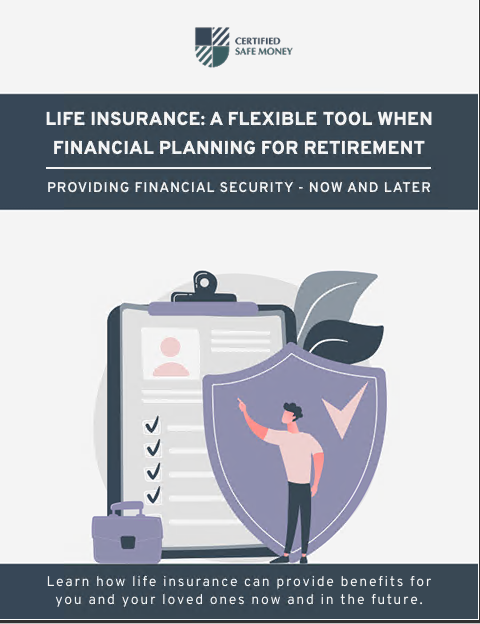Annuities are a unique financial tool that can help people secure retirement and life income. When annuities are used as an investment vehicle, the aftereffects and what happens with the remaining funds are often disregarded. So, what happens to an annuity when you pass away? When you die with annuity money, numerous scenarios can play out. It depends if your annuities continue to pay after your death. It also depends on whether you’ve selected a beneficiary for your annuity. This article outlines how an annuity works and its death benefit options. Key takeaways Beneficiaries have several types of annuity options. Different annuities have different payment alternatives and offer income differently, depending on how they’re built and what you choose with your financial adviser while establishing the original contract. Consult a financial adviser before buying an annuity. Annuities Annuities help people prepare financially for life’s unpredictability. Annuities are safer than the stock market or other high-risk investments because they provide certainty and may be calculated for the length of time a person will need income. Annuities come in different forms. Annuity Types To completely comprehend what happens to an annuity when you die, you must first understand the variants of common annuities often chosen by consumers when purchasing the original annuity contract. Joint annuities Two joint annuity types exist:
- A joint-life annuity only pays out when the first person dies.
- A joint and last survivor annuity pays until both annuitants die (this is the most expensive type of annuity available).
Deferred Annuities Deferred Annuities have an accumulation period when they build cash value and distribute it at a later date. Refund Annuities Refund annuities are a provision insurance companies put on annuities to secure payments if an annuitant dies early. That reduces the danger that people won’t receive annuity payouts or provide for their families. It’s essential to identify a beneficiary in your contract if this happens. Immediate Annuities Immediate annuities take a lump sum and start paying the annuitant immediately. After winning the lottery, these are typically employed to prevent irresponsible spending and offer a lifetime income. Annuities’ beneficiary options Now that we understand how annuities are structured and how they work, let’s explore why a beneficiary is essential and your alternatives if you die prematurely. Annuities are similar to life insurance in terms of naming a beneficiary and delivering the remaining benefits. At the annuity owner’s death, the remaining funds can be left to a beneficiary the owner chooses when the contract is formed. Who should be my annuity’s beneficiary? Common beneficiaries examples are spouses, children, grandchildren, and parents. However, you’re not limited to the beneficiary mentioned above. You can choose your annuity’s beneficiary, and the insurance company that issued the annuity will write a contract specifying your choice. This contract specifies annuity details, such as where surplus money goes. Two beneficiary options When the annuity owner dies, the contract might be structured in two ways: Option 1 gives the annuity owner all the remaining money. Option 2 guarantees a minimum to the beneficiary upon the annuity owner’s death. Before creating a contract, you should compare choices and consult a financial specialist. More cost or premium may be necessary to achieve a guaranteed minimum, reducing earnings and accumulation. Forms of annuity withdrawal options What happens when an annuity owner names a beneficiary and dies? Assume the contract is structured and has a beneficiary. When the annuity owner dies, the insurance company distributes the remaining payments and funds to any named beneficiaries. Payment options for the beneficiary Beneficiaries might get compensation in several ways. One-Time payment Leftover funds are usually provided as a lump-sum amount or a stream of payments. If you choose a lump sum payment, you or your beneficiaries will receive one check. Once this is done, the contract is considered fulfilled. Stream of payments If you choose a stream of payments, you’ll decide how long to continue them, and the payments will be distributed accordingly. As the beneficiary, you should consult an expert before selecting the best choice. When someone dies, annuity leftover funds vary The amount of money left to annuity beneficiaries differs from funds received from a life insurance policy. The insured chooses their death benefit amount with life insurance; their beneficiaries get that amount if they die. On the other hand, annuity leftovers might vary substantially. It depends on how many payments have been made, the annuity’s current rate of return, and how much cash remains. Annuities can be an excellent financial tool Usually, annuities aren’t designed to support your family after your death. Comparing annuities vs. life insurance and analyzing the best life insurance companies may be smarter in these cases. An annuity may make more sense for people who require an extra layer of protection in their financial portfolio and guaranteed income in their later years. Annuities have pros and cons, so it’s critical to speak to a specialist about your beneficiaries’ alternatives and death benefit payment options. Nonetheless, annuities can benefit a broad spectrum of consumers who require retirement guarantees.
Contact Information:
Email: dakota1339@aol.com
Phone: 4022508277
Bio:
Carl Wyllie is an advisor focused in areas of Medicare, retirement, estate planning, and crisis planning. Carl works with individuals of all ages in planning for their retirement. He is uniquely effective in building working relationships between their families and elder care law attorneys to assist them in avoiding a healthcare crisis. Carl is particularly sensitive to helping provide the means for his clients to maintain their independence and dignity when a change in their health occurs due to the natural aging process.














